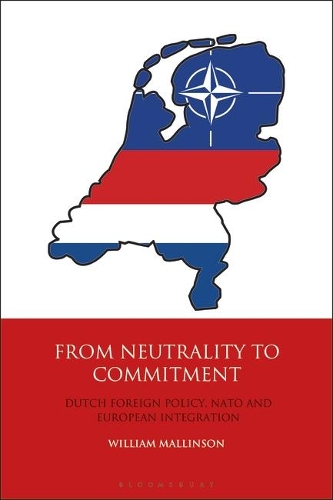
From Neutrality to Commitment: Dutch Foreign Policy, NATO and European Integration
Publishing Details
From Neutrality to Commitment: Dutch Foreign Policy, NATO and European Integration
By (Author) William Mallinson
Bloomsbury Publishing PLC
I.B. Tauris
30th May 2010
United Kingdom
Classifications
Tertiary Education
Non Fiction
327.492
Physical Properties
320
Width 138mm, Height 216mm
Description
Until the mid-twentieth century, the Dutch, with their overseas empire, had managed to stay aloof from the machinations of intra-European fighting. However, the beginning of the Cold War found them persuaded by Britain and the US to break with their independent past, and fit into the emerging Western security system. William Mallinson here considers how major post-war developments in Europe affected Dutch foreign policy, traditionally one of abstentionism, and studies the extent of Dutch influence in post-war Western co-operation. Important landmarks, including the Marshall Plan, Brussels Treaty Organisation, North Atlantic Treaty Organisation, Council of Europe, Schuman Plan and Pleven Plan, so vital to an understanding of contemporary international relations, are all treated incisively. The book sheds light on defence, foreign and economic policy, treating European developments from a previously neglected angle. In so doing, it provides vital insights into the history of European recovery after World War II and into the development of a postwar international order.
Reviews
'The rise of the Netherlands in the seventeenth century is a relatively well-known story; its hard-fought wars with England remain alive at least in the consciousness of naval historians. During the nineteenth century, the Netherlands clung to a policy of neutrality and non-intervention in European affairs and continued this right up till 1940. However, with the invasion of the Germans in 1940, any belief that the wider world might be ignored came to a sorry end. So what would happen after 1945 Would there be a return to neutrality Would realism demand a policy of ruthlessly sticking to the defence of national interests What in any case, would be a proper definition of these interests in post-war Europe Naturally the Dutch, like all other nations who attempt to define their national interests, were split, causing heated debates. How a final outcome was reached is the story told by William Mallinson in this splendid book. It is well worth reading to find out what happened. I thoroughly recommend it.' - Alan Sked, Professor of International History, London School of Economics and Political Sciences; 'The work shows in detail, and most incisively, how the Netherlands was strongly encouraged, pushed, even, by Britain, to give up its independent stance, and become part of the Cold War system. It is most relevant for today, given the current debate on European integration and defence questions.' - Vassilis K. Fouskas, Professor of International Relations, University of Piraeus and Editor of the Journal of Balkan and Near Eastern Studies
Author Bio
William Mallinson is Lecturer in British History, Literature and Culture at the Ionian University, Corfu. He is a former diplomat and the author of 'Cyprus: A Modern History' (I.B.Tauris, 2005).
